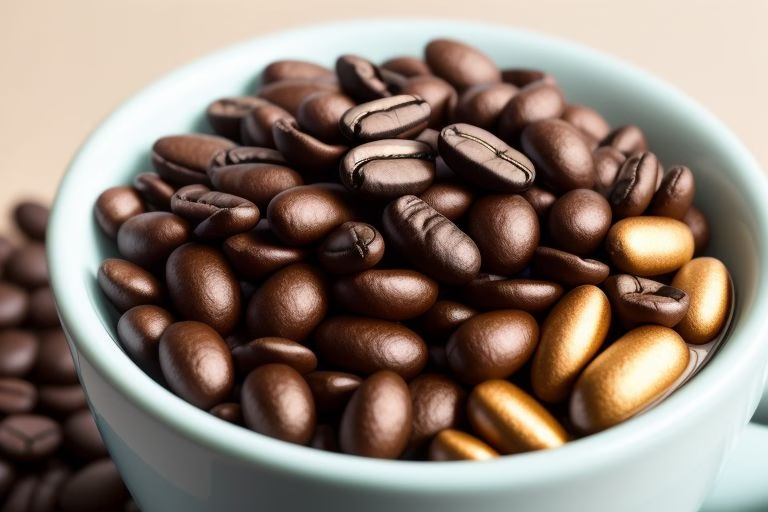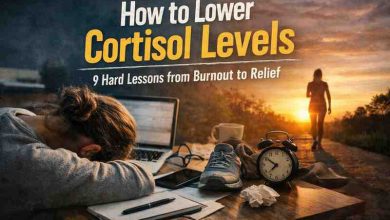
When you’re battling a cold or the flu, you might reach for your favorite caffeinated beverage to boost your energy. But did you know that caffeine can interact with many over‐the‐counter cold medicines? In this guide, we explore how caffeine affects cold medications, the risks involved, and the best alternatives for staying hydrated and symptom‐free.

How Does Caffeine Interact with Cold Medicine?
Cold medications often include active stimulants—such as pseudoephedrine or phenylephrine—to relieve nasal congestion. Because caffeine is itself a central nervous system stimulant, combining it with these medications may amplify side effects.
Key Interactions Include:
- Stimulant Overload:
- Combining caffeine with cold medicine stimulants can lead to increased restlessness, anxiety, and jitteriness.
- Absorption Issues:
- Caffeine can alter the way your body absorbs and metabolizes cold medicines, potentially reducing their effectiveness.
- Heightened Side Effects:
- Overlapping effects may include rapid heart rate, high blood pressure, dehydration, and sleep disturbances.
What Are the Risks of Mixing Caffeine with Cold Medicine?
Drinking large amounts of caffeine when taking cold medications may increase your risk of several serious complications:
- Cardiovascular Strain:
- Increased heart rate and elevated blood pressure may lead to palpitations, heart attacks, or strokes.
- Digestive Problems:
- Caffeine can cause gastrointestinal upset and dry mouth.
- Exacerbated Nervous System Effects:
- The combined stimulatory effects may cause severe anxiety, insomnia, and even jitteriness that interferes with daily functioning.
Clinical Examples:
- Case Report Insight:
Some case studies suggest that coffee may reduce the absorption of thyroid medications by more than 50%—a warning sign that similar interactions might occur with cold medications.
How Long Should You Wait Before Drinking Caffeine?
There’s no universal rule, but here are a few guidelines to help minimize risks:
- General Recommendation:
- Wait at least 60 minutes after taking your cold medication before enjoying caffeine.
- Personal Factors:
- Speak with your healthcare provider about the best timing based on your overall health, specific medications, and dosage.
- Monitor Your Symptoms:
- If you notice increased anxiety, rapid heart rate, or other concerning side effects, consider adjusting your caffeine habits.
Safe Alternatives to Caffeine During a Cold
If you’re under the weather, consider these caffeine-free beverages that can help soothe your symptoms while keeping you hydrated:
- Herbal Teas:
- Ginger and Honey Tea:
Ginger is a natural anti-inflammatory, and honey can soothe a sore throat. Steep fresh ginger in hot water, add a teaspoon of honey, and enjoy a warm, comforting cup. - Lemon Herbal Tea:
Lemon provides a vitamin C boost that may reduce cold symptoms. Enjoy this tea hot or cold to ease nasal congestion and soothe your throat. - Elderberry Tea:
Known for its antioxidant properties, elderberry tea can help fight inflammation. (Opt for prepared elderberry teabags to ensure safety.)
- Ginger and Honey Tea:
- Warm Water with Honey:
- A simple mix of warm water and honey can help keep you hydrated and reduce throat irritation.
Frequently Asked Questions
Q: Can I still drink a small cup of coffee with my cold medicine?
A: If your symptoms are mild and your medication does not contain strong stimulants, one small cup may be acceptable. However, always consult your healthcare provider for personalized advice.
Q: What if I accidentally mix caffeine with my medication?
A: Monitor your body for any unusual symptoms such as heart palpitations, excessive jitteriness, or difficulty sleeping. If symptoms persist, seek medical advice immediately.
Q: Are there any specific populations that should avoid caffeine completely when on cold medicine?
A: Yes. Individuals with heart conditions, high blood pressure, or who are sensitive to stimulants should be particularly cautious and consider avoiding caffeine during their cold or flu treatment.
When Should You Seek Medical Advice?
Contact a healthcare provider if you experience:
- Persistent or severe heart palpitations
- A sudden spike in blood pressure
- Prolonged nausea or vomiting
- Uncontrolled anxiety or severe insomnia
- Any other unexpected or severe side effects
While caffeine is a beloved daily ritual for many, mixing it with cold medications can amplify side effects and reduce the effectiveness of your treatment. By understanding these interactions, waiting the appropriate amount of time before consuming caffeine, and opting for safe alternatives like herbal teas, you can manage your cold symptoms more effectively and safely.
Always consult with your healthcare provider for tailored advice and before making any significant changes to your medication or caffeine intake.
Medical Disclaimer:
This article is for informational purposes only and should not replace professional medical advice, diagnosis, or treatment. Always consult your doctor or pharmacist with any questions about your medications or health conditions.



